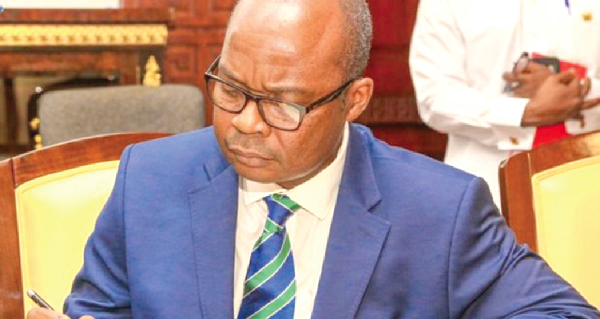The Bank of Ghana (BoG) has set a deadline of April 2018 for Microfinance Institutions (MFI) to comply with its new business rules or risk being sanctioned. This is expected to tighten the supervision of the Central Bank to effectively streamline the activities of MFIs in the country.
Per the new rules, deposits at MFIs have been limited to GH¢50,000 per depositor, lending to a client has also been limited to GH¢50,000 per client and the reporting requirements have also been strengthened.
Capital requirements have also been revised and the MFIs have been grouped into four with new capital requirements for each.
Tier 1, which is made up of savings and loans companies and rural banks, now have a new capital requirement of GH¢ 15 million and GH¢ one million respectively, while tier 2 which is made up deposit taking micro finance companies now have a capital requirement of GH¢ two million.
Tier 3, which is made up of non-deposit taking money lending companies and financial non-governmental organisations, also have a new capital requirement of GH¢ two million and GH¢ 300,000 respectively, while tier 4 which is made up of individual money lenders and susu collectors that are supervised by their umbrella associations under the supervision of the BoG are without a minimum capital requirement.
The business rules also require the MFIs to have a public governance policy and under the policy, they are to establish a number of committees including credit management, risk management and liquidity contingency among others and they are to submit reports of their meetings to the BoG.
This was disclosed when officials of the BoG, led by the Governor, Dr Ernest Addison and members of the technical team appeared before Parliament’s Select Committee on Finance to answer questions on measures the Central Bank had put in place to improve the activities of MFIs and check the operations of sham companies in the country.
According to the BoG, MFIs are now being encouraged to focus on providing financial services to people who are in the lower income bracket and small-scale entrepreneurs.
The idea is to encourage these people save and get small loans when required, while persons with much larger funds or financial requirements resort to the traditional banks.
Sanctions
Responding to the issue of sanctions, Dr Addisson admitted that the previous regime was not punitive enough.
As a result, he said the BoG had now introduced stiffer sanctions for MFIs under the business rules.
He noted that the rules had adequate and deterrent sanctions that the bank was applying and pointed out that since the introduction of the new measures, the BoG was recording higher compliance.
As to what steps BoG takes when an unregistered MFI is discovered, he said the BoG reported them to the Financial Intelligence Centre and other law enforcers for the appropriate actions to be taken.
Efforts to get rid of unlicensed MFIs
In a response to what other steps the BoG was taking to address the issue of unlicensed MFIs, the technical team indicated that part of its efforts was to educate the public.
In view of this, the BoG has been conducting a number of public sensitisation throughout the country.
A call centre has also been established to address the concerns of the public and licensed MFIs are now to display approved logos at their premises that help to identify them from the unlicensed ones.
The BoG is also seeking the assistance of the law enforcement agencies to help arrest unlicensed companies.
Furthermore, it has also established the Other Financial Institutions Supervision Department (OFISD) to oversee the operations of the MFIs.
The team from the BoG assured the finance committee that the measures were so far yielding positive results and that it would continue to do more. — GB
